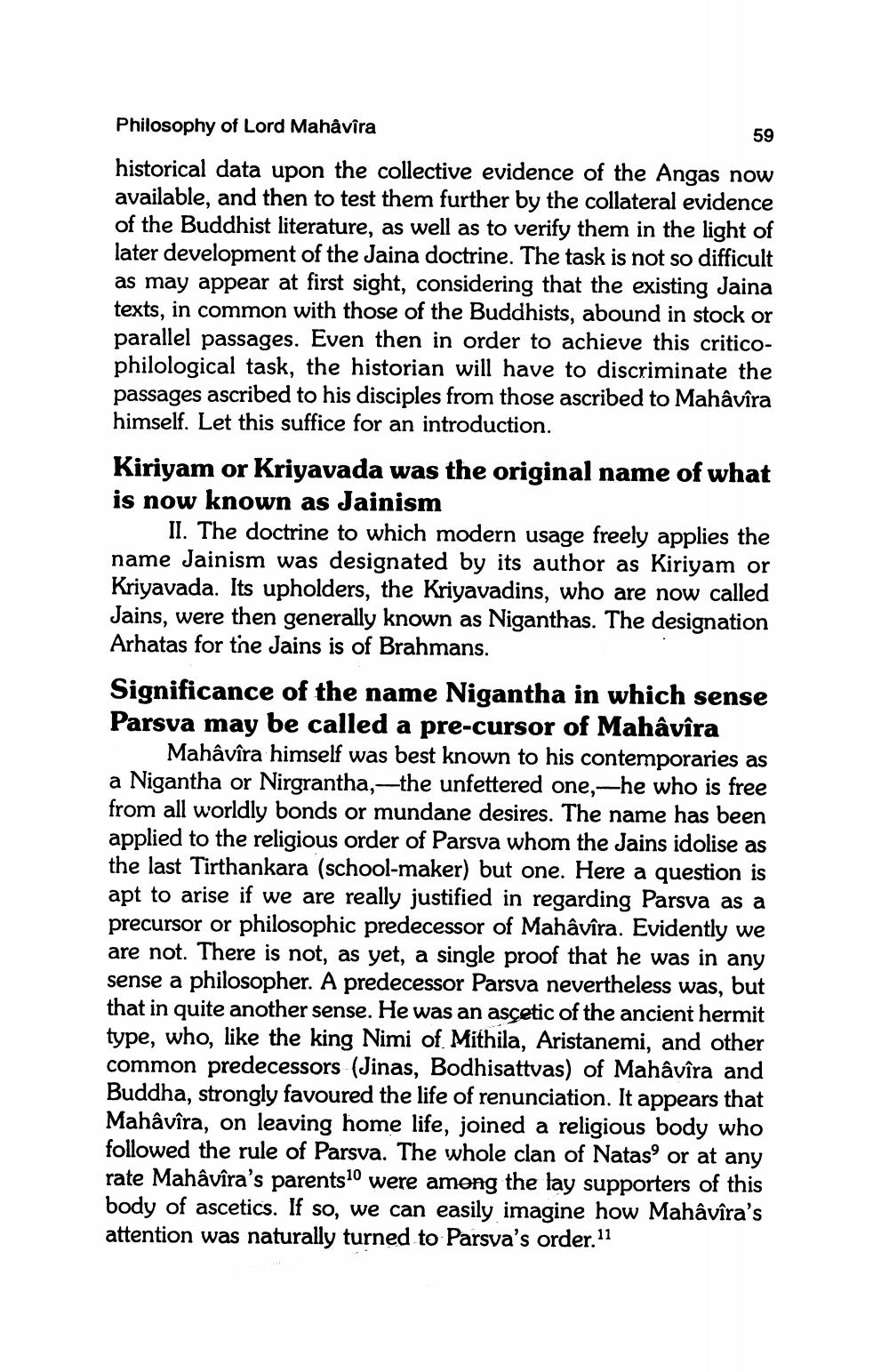________________
Philosophy of Lord Mahâvîra
historical data upon the collective evidence of the Angas now available, and then to test them further by the collateral evidence of the Buddhist literature, as well as to verify them in the light of later development of the Jaina doctrine. The task is not so difficult as may appear at first sight, considering that the existing Jaina texts, in common with those of the Buddhists, abound in stock or parallel passages. Even then in order to achieve this criticophilological task, the historian will have to discriminate the passages ascribed to his disciples from those ascribed to Mahâvîra himself. Let this suffice for an introduction.
59
Kiriyam or Kriyavada was the original name of what is now known as Jainism
II. The doctrine to which modern usage freely applies the name Jainism was designated by its author as Kiriyam or Kriyavada. Its upholders, the Kriyavadins, who are now called Jains, were then generally known as Niganthas. The designation Arhatas for the Jains is of Brahmans.
Significance of the name Nigantha in which sense Parsva may be called a pre-cursor of Mahâvîra
Mahâvîra himself was best known to his contemporaries as a Nigantha or Nirgrantha,-the unfettered one, he who is free from all worldly bonds or mundane desires. The name has been applied to the religious order of Parsva whom the Jains idolise as the last Tirthankara (school-maker) but one. Here a question is apt to arise if we are really justified in regarding Parsva as a precursor or philosophic predecessor of Mahâvîra. Evidently we are not. There is not, as yet, a single proof that he was in any sense a philosopher. A predecessor Parsva nevertheless was, but that in quite another sense. He was an ascetic of the ancient hermit type, who, like the king Nimi of Mithila, Aristanemi, and other common predecessors (Jinas, Bodhisattvas) of Mahâvîra and Buddha, strongly favoured the life of renunciation. It appears that Mahâvîra, on leaving home life, joined a religious body who followed the rule of Parsva. The whole clan of Natas9 or at any rate Mahâvîra's parents10 were among the lay supporters of this body of ascetics. If so, we can easily imagine how Mahâvîra's attention was naturally turned to Parsva's order.11




